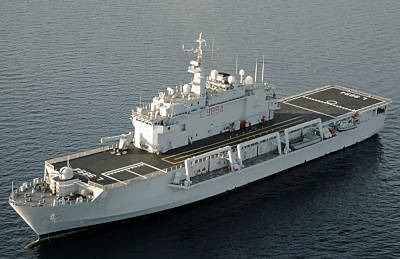WASHINGTON, Sept. 15, 2011 — The commander of U.S. Africa Command is worried about moves by terror groups on the continent to work together, possibly posing a threat to the United States.
Army Gen. Carter F Ham, who spoke to reporters at the Defense Writers’ Group here yesterday, said that while al-Qaida may be “somewhat diminished,” its affiliates in Africa pose a growing concern.
The three primary terrorist groups in Africa are Al-Shabab in Somalia, al-Qaida in the Islamic Mahgreb in the Sahel region, and Boko Haram in Nigeria.
“Each of those three pose a significant threat not only in the nations where they primarily operate, but regionally,” Ham said, “and I think they pose a threat to the United States.”
The three terror groups have explicitly and publicly voiced intent to target Westerners, in general, and the United States, specifically. “I have questions about their capabilities to do so; I have no question about their intent to do so,” Ham said. “And that, to me, is very worrying.”
The three groups also have voiced their intent to increase collaboration, and synchronize their efforts.
“We’re seeing this most clearly between AQIM and Boko Haram,” the general said.
And the terrorist groups have expressed an interest in sharing training sites and in planning operations.
“That is very, very worrying,” Ham said. “The connections with al-Shabab are probably more idealistic than realistic at this point, but just the fact that they want to connect is worrying.”
If left unaddressed, the terror groups could coalesce and produce a network that would run from East Africa, through the center of the continent and into the Sahel and Mahgreb, he said.
The United States has to work with regional partners to address the terrorist threat in Africa, Ham said. U.S. officials also must understand, he added, that the Africans are better suited to address this threat than a solution imposed from outside.
In Mali, for example, al-Qaida in the Mahgreb is a huge problem, Ham said. The Malian government needs assistance to counter the terrorist group, and Africom has worked with the government to beef up its anti-terrorist capabilities.
“We think we’re doing that in a meaningful way,” he said.
The general also addressed conditions in Libya, and the possibility that extremist groups might try to hijack the revolution against Moammar Gadhafi. The United Nations will have a large role in post-conflict Libya, and the international organization is aware of the extremist problem, he said.
Ham said he’s also concerned about the possible proliferation of weapons from Libya, starting with man-portable air defense weapons. Gadhafi bought thousands of the weapons, and it would be dangerous if terror groups got their hands on them. Ham said there has been greater intelligence sharing and better border enforcement in the region to control the spread of such systems.
The amount of conventional weaponry and weapon-making materials in Libya also concerns the general. These could supply terror groups like al-Qaida in the Mahgreb or Boko Haram with the components for improvised explosive devices.
Ham is concerned about residual materials and components of chemical weapons in Gadhafi’s arsenal.
Before March, “there was an on-going effort to demilitarize the materials, but they didn’t complete it,” Ham said. “There’s a great concern about that material, even though it is not weaponized and not easily weaponized.”
Source:
U.S. Department of Defense
Office of the Assistant Secretary of Defense (Public Affairs)

 von
von 